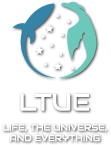A guest post by Matthew Becket.
Two incredible visuals pop into my head when I think of the writers’ life—George McFly opening a box of books at the end of Back to the Future and Jack Torrance scolding his wife during an unproductive writing session in the movie The Shining. Both scenarios are powerful and affected me as a young movie obsessed kid in the Eighties. I didn’t know any writers personally then and Hollywood hadn’t shown me much in the way of how they should present themselves at home. These guys seemed real to me and I took them seriously.
I remember the warm feeling I got when George showed Marty Mcfly those books. Keep in mind, this was Marty’s perfect nineteen-eighty-five where all his previous problems were fixed. His Dad glowed as he presented Marty with a copy and gave a brief, but optimistic, speech on achievement. The sun was shining, everyone was glowing, and the audience was happy because they wanted George to win. He did it! He had been published! As a twelve year old boy watching this I thought that meant that George had made millions of dollars and would never have to work again. This is what writers do!

The flip-side, displayed in the movie The Shining, gave me a different impression of writers. Jack Torrance drank heavily, said bizarre things to his wife, talked to ghosts, and ignored his gifted son. Violent outbursts and drinking eventually led him down a literal path to self destruction. There was no sunny day or box of books to share with his son. Nope. Jack Torrance turned into a hunk of frozen meat. Is this what writers do?
As young writers, we hope for the George McFly scenario. But what did that scene not show? Did it show the hours it took to write the first draft of George’s book? It didn’t have to. The George in that reality was a perfect George and an object of Hollywood fantasy. Things came easy to him.
I’m not twelve anymore and I’ve met real writers. I’ve met ones that have put in the hours and sacrifice. I’ve met successful authors and when they talk I listen really closely. These people have found a balance between real life and the writers’ life. They have devised a situation at home where they can create. I’ve picked up some of what they said and, although the following may not wholly pertain to you, I’m sure you’ll get something out of it.
You’re a writer! Tada!
First off, realize that the other members of your household cannot take your writing seriously if you don’t. Anyone can suddenly say: “I’m a writer!”, but there has to be something there. You cannot expect anyone to be supportive unless you’re actively writing. Unfortunately, they may never take it seriously, but they cannot possibly do so unless you take those first steps. You have to write.
If you aren’t taken seriously, others may think it’s a phase. They may just consider it a cute little hobby, and you’ll have to come to terms with that. Do not expect them to be your number one supporter especially if you have nothing to show for it. This will be part of your growth as a writer. You can use this as a catapult hurtling yourself closer to a career. Prove them wrong.
If you do have a supportive spouse or significant other it can be really fantastic. If they’re in the business it can be a no-brainer. Although, supportive family members deserve payback for those years of support. As young authors we have little or no money to show for all our efforts. It is important to meet that support with utter gratitude (and someday, hopefully, money). Again, it goes back to the same idea — you have to write.
Don’t forget to do the laundry and feed the cat.
Next, and this is tricky, you need to nurture your writing career without neglecting family. Writers will always find the time to write, but they need to do this without damaging relationships. This is usually a situation of give and take. Explain to your loved ones how important it is for you to get time to write. Create a schedule in which all the important things you normally do are highlighted and fit your writing time around those things. (Recently I’ve been using a calendar in conjunction with wipe-off boards and just planning ahead has taken a tremendous amount of stress off my shoulders.) When the others in your home notice the lengths you’re taking to make sure you haven’t forgotten you live there too, they will most likely respect your writing time. Don’t give them a reason to resent it. Eventually they’ll see it as a part of your routine. Hopefully, they’ll see it as your job.
The grain of salt.
Another sensitive aspect of having your family or spouse involved in your writing is their critique. These people know you, they will have biases. Just as sometimes we’re too close to our writing, our family members can be too close to it as well. They may say they love everything you do, or quite the opposite – they may shut it down straight away. It isn’t fair to them to think that they should view your writing in the same way a larger fanbase would. Find the largest grain of salt you can and take it when family members read your writing. Of course there are exceptions. Perhaps your spouse is a fantastic line editor and even does this as a profession. I certainly have talented individuals in my family that I run things past. Even as their intentions may be good, realize that the buck certainly doesn’t stop with them.
When it comes to your home life give the writer in yourself gravity and identify with it. Be bold, passionate, and don’t be afraid to say “Yeah, I’m a writer.” The more you vocalize it and let others know, you’ll be less likely to fail and begin to have more expectations – great expectations – for yourself.
You can do this. You’re a writer.
Matthew started lying as soon as he could talk. Thrilled with the reaction he received, he started making the lies bigger. Some of the lies he had kicked around for years became commodiously appropriate for the written word. Matthew has fun lying in the Middle Grade genre, but lately has been taking on the Adult Dark Humor Crime Thriller genre. He is currently working on his novel – The Sommelier.
When not lying, he is usually traveling, or hanging out with his wife and three cats in Celebration, Florida while looking up words like “commodious” on thesaurus.com .
Where do I find this guy?
Facebook: https://www.facebook.com/matthewdavidbecketauthor/?ref=hl
Twitter: https://twitter.com/MatthewBecket



